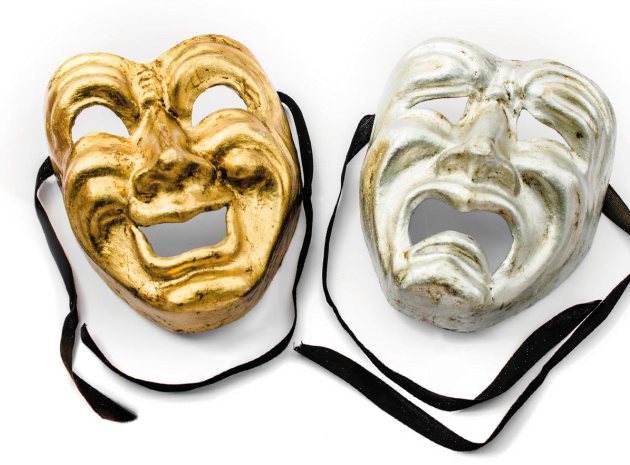William Shakespeare may have written that “all the world’s a stage”, but sadly not everyone is getting the chance to experience live theatre. Earlier this year venues such as the National Theatre and Shakespeare’s Globe announced a decline in school visits – the latter admitted a 7% drop in education visits in 2018 – with the blame largely seen to lie with the increased budget pressures facing schools.
In such austere times, the idea of spending money, as well as taking time out of the precious school day, to take pupils to the theatre may seem frivolous.
However, as a new report commissioned by Encore Tickets shows, live theatre experiences aren’t merely a nice educational add-on, they are crucial for the development of students.
Deeper understanding
The most obvious benefit highlighted in The benefits of attending live performance for children and adolescents, by developmental psychologist Dr Natasha Kirkham, is academic. Kirkham’s report references a 2018 study by J.P Greene et al. that showed that students who had seen a live performance of a play scored higher on knowledge of content and vocabulary versus their classmates who saw the same play as a movie adaptation.
“If you’re studying plays in English, the text is merely a blueprint for creating a performance,” points out Paula Hamilton, deputy director of learning at the National Theatre. Plays are all about character interpretation and staging, so it’s important to see that enacted. Ellen Merry, Head of English, at Linton Village College, states that the biggest effect she sees live theatre have is “the confidence that the students have in discussing the staging and interpretations of stage directions when analysing the play”.
Live theatre is also crucial for understanding trickier playwrights such as Shakespeare, who can seem quite daunting on the page. “Poor Shakespeare isn’t served well if he’s only served up on the page in a classroom,” laments Patrick Spottiswoode, director of Globe Education, the education arm of Shakespeare’s Globe. He relates a tale of a student coming out of Globe production of Romeo and Juliet and saying the play was much better than the one Shakespeare wrote. Seeing someone in front of you bring emotions to words on a page can help convey a story more convincingly and make meanings clearer.
Empathy and tolerance
Another consequence of live theatre is that it teaches students how to develop relationships. Kirkham refers to a study by psychologists from UCL that found people’s heart rates synchronise in a theatre audience – this is a behaviour “that has been shown to promote affiliation and social bonding”. This makes sense, given how the shared experience of something momentous often helps people connect. In fact, teachers such as Merry find that the shared heightened emotion of watching a play also teaches their students that it’s ok to feel and express emotions such as sadness.
Moreover, Kirkham highlights that going to the theatre promotes social tolerance and empathy with others. Her paper refers back to Greene’s 2018 study, noting that the children who took part “scored higher on measures of social tolerance as measured by their likelihood to endorse statements such as ‘I think people can have different opinions about the same thing’”.
Even the actual journey of travelling to the theatre and mingling with strangers encourages empathetic thinking. “Pupils are given opportunities to practise social etiquette and being tolerant of others during trips to the theatre,” says Frances Gleed, head of expressive arts at Cirencester Deer Park School. “Our pupils are always very mindful of how they interact with others, they are respectful of the fact that they are representing their school.”
The topics covered, too, can help promote social tolerance. “Schools really welcome using theatre and plays as a way to open up difficult discussions,” says Hamilton. Theatre is an effective way of illustrating different points of view and it creates a safe space to explore ideas such as mental health, sexuality, and politics.
Finally, and what Kirkham omits to mention, is that theatre also helps open students eyes up to the range of jobs available within the industry. Plays don’t just require actors – there are a myriad ofbackstage roles, which often don’t become obvious until you experience a live performance. “There’s a rhetoric around ‘it’s a difficult profession’, ‘you’ll never earn any money’, but actually there are hundreds of really fantastic backstage and offstage roles,” says Hamilton. “I think by coming to the theatre, you get more of a sense of everything that goes into making that production.”
Given all these wonderful benefits, then, how then can schools combat the financial pressures that are inevitably at the heart of the drop in numbers of school pupils experiencing live theatre?
Schemes of support
First, it is worth noting that there are initiatives helping schools like Playing Shakespeare with Deutsche Bank – a partnership between the Globe and the eponymous bank. This scheme cuts Shakespeare plays down to 90 minutes to make them more accessible, offers online materials to support teaching of the plays, and gives out 18,000 free tickets for schools in its target areas of London and Birmingham; there are further free tickets for community groups and families at Saturday Matinees and subsidised tickets for other schools.
The National Theatre meanwhile, regularly tours schools with its plays. It also provides On Demand in Schools, which allows teachers, wherever they are in the country, to stream National Theatre productions into their classrooms for free.
Learning resources are also provided alongside. So far there are 2700 secondary schools signed up – so 65% of state secondary schools.
There is a widespread acknowledgement though, that while helpful, live streaming does not replace the experience of being in a live theatre, for many of the reasons discussed earlier. Supposing you are not one of the lucky schools helped by schemes like Playing Shakespeare with Deutsche Bank or visited by the National Theatre, what can you do?
Cultural capital
Gleed offers practical suggestions, such as organising theatre trips up to two or three months in advance “so that pupils and their families are given time to meet payment deadlines”, and using Pupil Premium to help fund the students who wouldn’t be able to afford this at all.
A partnership approach is also useful. Ormiston Academies Trust enrichment manager Jemima Waltho recommends building relationships with Theatre in Education organisations and the Arts Council Bridge Organisations, which can offer free or discounted theatre experiences.
Will all this support address the cultural capital gap that many state secondary school pupils face? Sadly, while it’s all helpful it’s unlikely to be enough without government backing. “It’s all very well for the current government to tell us we really value arts and culture as part of a broad and rich education, but they have to create the climate where schools can access that,” says Hamilton heatedly.
Let’s hope this is a message our new Prime Minister hears amongst all the Brexit noise; because otherwise, clearly, our country’s young people could be seriously losing out.
Six ways live performance can help students:
- Improves academic outcomes
- Allows true understanding of a play
- Increases knowledge of the theatre world and its job opportunities
- Helps to develop relationships with others
- Increases levels of empathy and social tolerance of others
- Provides a safe space for discussion of tricky issues
About the author
Ploy Radford is a freelance journalist and creator of the history podcast Past Matters.










